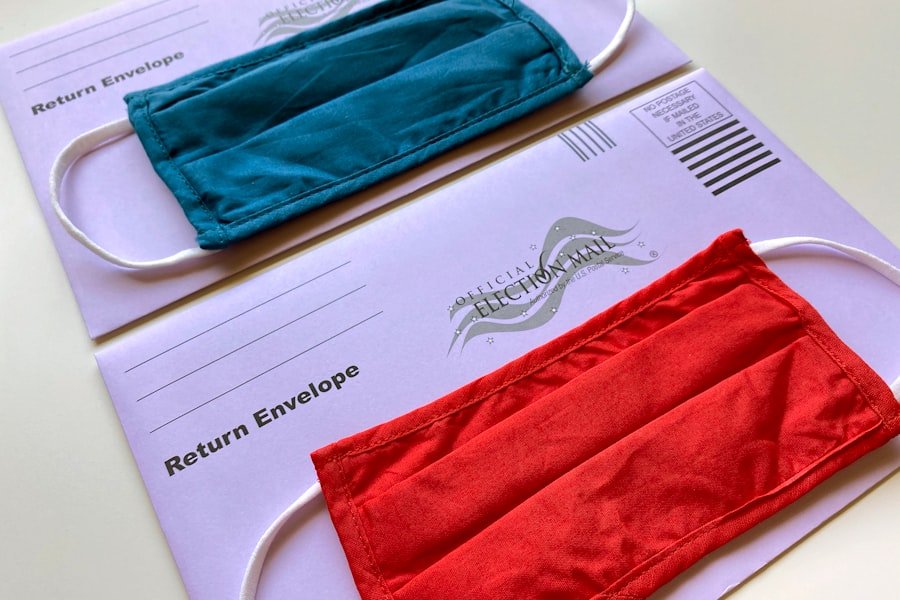President Joe Biden’s education policy focuses on providing equal opportunities for all students, regardless of background or socioeconomic status. The administration has developed a comprehensive plan to address challenges in the education system, including access to quality education, student loan debt, and teacher support. The primary goal is to ensure every student has the necessary resources and support to succeed academically and beyond.
The policy includes proposals to increase public school funding, expand early childhood education access, and improve higher education affordability. It emphasizes addressing racial and economic disparities in education, aiming to close the achievement gap and support underserved communities. By prioritizing education, President Biden seeks to create a more equitable and inclusive system that prepares students for 21st-century challenges.
Biden’s education policy also focuses on supporting educators and improving teaching quality. Proposals include increasing teacher pay, providing professional development opportunities, and addressing shortages in high-need areas such as special education and STEM fields. By investing in teachers’ professional growth and well-being, the administration aims to create a more supportive and effective learning environment for students.
Overall, the policy reflects a commitment to addressing systemic issues in education and fostering a more equitable and inclusive learning environment for all students.
Key Takeaways
- Biden’s education policy focuses on increasing funding for public schools, expanding access to early childhood education, and addressing racial and economic disparities in education.
- Recent developments in Biden’s education policy include the passage of the American Rescue Plan, which allocated 0 billion to help schools reopen safely and address learning loss due to the pandemic.
- The impact of Biden’s education policy on schools and students is expected to be significant, with increased resources for low-income schools, expanded access to pre-K, and efforts to close the digital divide.
- Voter reactions to Biden’s education policy have been largely positive, with many supporting the focus on increasing funding for public schools and addressing equity issues in education.
- Criticisms of Biden’s education policy include concerns about the cost of implementing the proposed changes and the potential for federal overreach in education.
- Future implications of Biden’s education policy may include long-term improvements in educational outcomes for students, as well as potential challenges in implementing and sustaining the proposed changes.
- In conclusion, the next steps for Biden’s education policy will likely involve continued efforts to secure funding for education initiatives, address criticisms and concerns, and monitor the impact of the policy on schools and students.
Recent Developments in Biden’s Education Policy
Funding for K-12 Schools and Addressing Learning Loss
In recent months, President Biden’s education policy has seen significant developments, including the passage of the American Rescue Plan Act, which includes $130 billion in funding for K-12 schools. This funding is intended to help schools reopen safely and address the learning loss caused by the COVID-19 pandemic.
Investing in Early Childhood Education and Childcare
Another recent development in Biden’s education policy is the announcement of the American Families Plan, which includes significant investments in early childhood education and childcare. The plan proposes making preschool free for all three- and four-year-olds and providing additional support for low-income and underserved communities. This initiative reflects the administration’s commitment to addressing the needs of young children and ensuring that all students have access to high-quality early childhood education.
Addressing Student Loan Debt
Furthermore, President Biden has taken steps to address student loan debt by extending the pause on federal student loan payments until January 31, 2022. This decision provides relief for millions of borrowers who have been struggling with student loan payments during the economic uncertainty caused by the pandemic.
A Commitment to Education
These recent developments in Biden’s education policy demonstrate a commitment to addressing the immediate needs of students and schools, as well as laying the groundwork for long-term investments in education.
Impact of Biden’s Education Policy on Schools and Students

Biden’s education policy has had a significant impact on schools and students across the country. The funding provided through the American Rescue Plan Act has allowed schools to implement safety measures, such as improved ventilation systems and personal protective equipment, to facilitate a safe return to in-person learning. Additionally, the funding has supported efforts to address learning loss by providing resources for tutoring, summer programs, and mental health services for students.
The proposed increases in funding for Title I schools and special education programs have the potential to address longstanding disparities in education funding and support services. By targeting resources to schools with high concentrations of low-income students, these investments have the potential to improve educational outcomes for underserved communities. Similarly, the proposed investments in early childhood education have the potential to have a long-term impact on student success by providing a strong foundation for learning at an early age.
The extension of the pause on federal student loan payments has provided relief for millions of borrowers who have been struggling with student loan debt. This decision has allowed borrowers to allocate their resources towards other essential needs during a time of economic uncertainty. By addressing student loan debt, President Biden’s administration is working to alleviate financial burdens on individuals and families, allowing them to invest in their future and contribute to the economy.
Voter Reactions to Biden’s Education Policy
Voters have had varied reactions to President Biden’s education policy, with many expressing support for his efforts to address longstanding issues in the education system. The focus on increasing funding for public schools, expanding access to early childhood education, and addressing student loan debt has resonated with many voters who see these as critical issues that need attention. Additionally, the emphasis on supporting teachers and addressing disparities in education funding has garnered support from those who believe in the importance of investing in the future of our children.
However, there are also voters who have expressed concerns about certain aspects of Biden’s education policy. Some have raised questions about the potential impact of increased federal involvement in education, expressing concerns about government overreach and loss of local control. Additionally, there are concerns about the long-term sustainability of proposed investments in education, particularly in light of the economic challenges facing the country.
Overall, voter reactions to Biden’s education policy reflect a range of perspectives, with some expressing strong support for his efforts to address critical issues in education, while others raise valid concerns about potential implications of proposed policies.
Criticisms of Biden’s Education Policy
Despite its ambitious goals, President Biden’s education policy has faced criticism from various quarters. Some critics argue that his proposals are too costly and could lead to increased government spending without clear evidence of improved educational outcomes. Others have raised concerns about potential unintended consequences of policies such as free preschool for all three- and four-year-olds, questioning whether it would lead to overcrowding in existing preschool programs or strain resources in low-income communities.
Additionally, there are concerns about the potential impact of increased federal involvement in education on local control and decision-making. Critics argue that top-down mandates from the federal government could limit flexibility for states and local school districts to address their unique needs and challenges. There are also concerns about the potential for increased federal involvement to lead to politicization of curriculum and educational standards.
Furthermore, some critics have raised questions about the long-term sustainability of proposed investments in education, particularly in light of the economic challenges facing the country. They argue that while addressing immediate needs is important, it is also crucial to consider the long-term implications of increased government spending on education.
Future Implications of Biden’s Education Policy

Early Childhood Education: A Strong Foundation for Success
The proposed investments in early childhood education have the potential to have a long-term impact on student success by providing a strong foundation for learning at an early age. By expanding access to high-quality preschool programs, the administration aims to address disparities in educational outcomes and provide all students with a strong start to their academic journey.
Addressing Disparities in Education Funding and Support
Additionally, the proposed increases in funding for Title I schools and special education programs have the potential to address longstanding disparities in education funding and support services. By targeting resources to schools with high concentrations of low-income students, these investments have the potential to improve educational outcomes for underserved communities. Similarly, the focus on supporting teachers through increased pay and professional development opportunities has implications for creating a more supportive and effective learning environment for students.
Relief from Student Loan Debt
The extension of the pause on federal student loan payments has provided relief for millions of borrowers who have been struggling with student loan debt. This decision has allowed borrowers to allocate their resources towards other essential needs during a time of economic uncertainty. By addressing student loan debt, President Biden’s administration is working to alleviate financial burdens on individuals and families, allowing them to invest in their future and contribute to the economy.
Conclusion and Next Steps for Biden’s Education Policy
In conclusion, President Biden’s education policy represents a comprehensive effort to address longstanding challenges facing the education system. The proposed investments in early childhood education, K-12 schools, and higher education have significant implications for creating a more equitable and inclusive learning environment for all students. Additionally, efforts to support teachers and address student loan debt reflect a commitment to investing in the future of our children and ensuring that all individuals have access to quality educational opportunities.
As President Biden’s education policy continues to unfold, it will be important to monitor its implementation and assess its impact on schools and students across the country. Additionally, ongoing dialogue with stakeholders, including educators, parents, and policymakers, will be crucial for shaping future developments in education policy. By working collaboratively towards common goals, we can ensure that President Biden’s vision for an equitable and inclusive education system becomes a reality for all students.
For more information on the impact of education policy on the business world, check out this article on 5 Ways to Protect Cargo Transported by Your Business. Understanding the implications of education policy on workforce development and training can help businesses better prepare for changes in the labor market and ensure the protection of their transported goods.
FAQs
What is Biden’s education policy?
Biden’s education policy includes proposals to increase funding for public schools, expand access to early childhood education, make college more affordable, and address racial and economic disparities in education.
What are some recent developments in Biden’s education policy?
Some recent developments in Biden’s education policy include the passage of the American Rescue Plan, which includes funding for K-12 schools and higher education institutions, as well as proposals to make community college tuition-free and invest in historically black colleges and universities.
How have voters reacted to Biden’s education policy?
Voter reactions to Biden’s education policy have been mixed. Some support the increased funding for public schools and efforts to make college more affordable, while others have expressed concerns about the cost and potential impact on the national debt.
